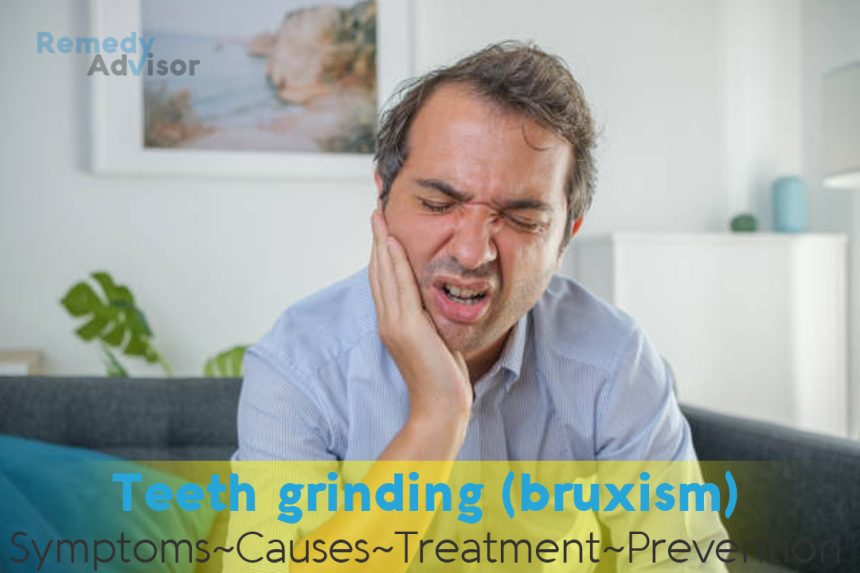What is it
Teeth grinding or clenching of the teeth during sleep, known as bruxism (from the Greek brychein, meaning to gnash the teeth), can cause facial soreness and pain, headaches, and fractured or abraded teeth, as well as the jawbone pain known as TMD (temporomandibular disorders). Nearly everybody is thought to have occasional episodes of nighttime grinding, but only a small percentage grind so much that they damage their teeth and jaws.
Episodes may occur eight or more times a night and can easily awaken a person in the same room. If your bedmate doesn’t tell you, your dentist, at a routine exam, may notice the signs of ground-down teeth and inform you that you’re a bruxer.
Symptoms
- Grinding or gnashing of the teeth at night; may occur occasionally or so frequently that teeth are worn down or damaged.
- Clicking sound and/or pain in your jaw.
- Jaw pain, earache, headache or facial pain upon awakening.
- Sensitive teeth and/or toothache.
What causes it
Bruxism is a complex phenomenon. There’s still argument about probable causes and appropriate treatments.
Emotional stress is a likely cause. Individuals who grind their teeth frequently report that they are experiencing marital or monetary problems, terrible of losing their jobs, taking final exams or otherwise under stress. Studies have not agreed on whether one particular personality is associated with bruxism. One small study found that shy, unhappy people tend to grind, but other studies have suggested that hard-driving perfectionists do.
Genetics may play a role, since bruxism seems to run in families. Malocclusion (faulty contact between upper and lower teeth) or restorative dentistry that isn’t quite right can cause mouth discomfort that, in turn, makes jaw muscles contract at night. People with sleep disturbances may also be prone to bruxism. Mood-altering substances, including alcohol and amphetamines, can promote the problem.
What if you do nothing
Occasional or light teeth grinding is not considered a serious problem. However, chronic, heavy grinding can result in jaw and ear pain and can contribute to periodontal disease and even the loss of teeth, as well as fractured teeth or broken restorations.
Home remedies
Reduce stress in your life
If you suspect that abnormal daily stress is causing the problem, find ways to address the problem. Relaxation techniques may help you to deal with stress or anger. Even something as simple as a warm bath before bedtime may help.
Warm your facial muscles
Place a warm washcloth on your face in the morning. This may help relax your muscles.
Chew softly
Avoid foods like hard candies and crusty bread or bagels, as well as chewing gum. Don’t chew on things like pencils or ice.
Take pain relievers
Aspirin, acetaminophen, and other over-the-counter pain relievers can help reduce jaw pain.
Reduce or eliminate alcohol intake
Teeth grinding often gets worse after consuming alcoholic beverages.







